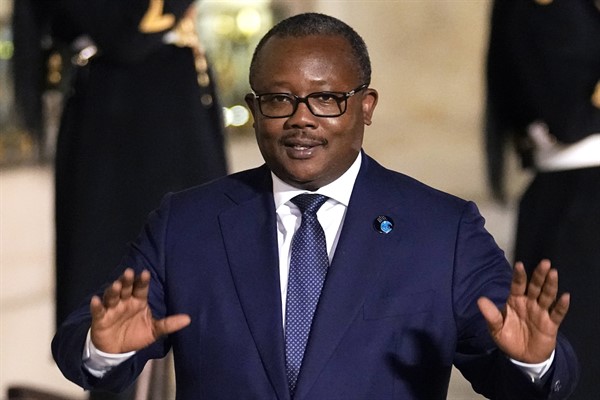President Umaro Sissoco Embalo dissolved Guinea-Bissau’s parliament this week and called for snap parliamentary elections to be held at the end of the year, in the latest twist to a long-running political crisis in the country. In a televised address to the nation, Sissoco cited “persistent and unresolvable differences” with parliament as the main reason for his decision. He also accused lawmakers of corruption and embezzlement, saying that several parliamentarians had “turned the people's national assembly into a place of political guerrilla warfare and conspiracy.”
Sissoco’s party, MADEM-G15, currently holds a minority of legislative seats; the historically dominant and former ruling African Party for the Independence of Guinea and Cape Verde, or PAIGC, holds the most seats and is part of a legislative majority that has opposed Sissoco’s policy agenda. The PAIGC and its allies have condemned Sissoco’s move to dissolve the national assembly, calling it an illegitimate overstepping of his authority and a violation of the separation of powers.
Sissoco’s dismissal of parliament, which is the latest episode in a back-and-forth power struggle with the national assembly, may have some roots in the fallout from an oil agreement he secretly negotiated last year with Senegalese President Macky Sall. As reported by a local newspaper in November 2021, Sissoco struck the deal without the knowledge of his own government officials or the approval of parliament. Almost immediately after the deal was exposed, it sparked outrage across civil society and among sections of the public.

